Epidemiologist Professor Catherine Bennett reveals shocking abuse from Covid trolls
Prof Catherine Bennett’s been told it’s impossible to “educate women”, called “sweetie” and the “boss’s girl” but this is how she beats the trolls.
Real Life
Don't miss out on the headlines from Real Life. Followed categories will be added to My News.
She’s been referred to as “sweetie” by police officers during an examination of human remains and even called the “boss’s girl” by a senior academic after being appointed to a new position but Professor Catherine Bennett hasn’t let sexism derail her career.
Now, in the lead-up to International Women’s Day, the well-known Covid expert has joined more than 100 Australian women in sharing the obstacles they’ve had to overcome to achieve success, and what she faced will come as no surprise to other women in male-dominated areas.
While many Australians might recognise Prof Bennett as an epidemiologist, not everyone appreciates exactly how difficult it is to become an expert in this field.
Prof Bennett first completed a degree in health sciences with an honours in genetics and microbiology, followed by a PhD in physical anthropology and a masters in applied epidemiology.
As a young woman in her 20s working in forensic anthropology, Prof Bennett assisted police at sites where skeletal remains were found, to assess how old the bones were and whether they could potentially be of police interest.
Later she worked for NSW Health on outbreak response, helped set up the medical surveillance for Australia’s Kosovo refugee intake and worked as the Northern Sydney public health co-ordinator during the Sydney Olympics, which also involved conducting a training exercise preparing for a possible chemical or biological terror attack.
Prof Bennett remembers being one of two women in a room with about 50 other men at a planning meeting, many of them worked for emergency services and towered over her.
“I remember feeling really small,” she said.
She also laughs at the memory of seeing “lamingtons the size of cakes” and supermarket sponge cakes cut into quarters, being brought out for morning tea.
“They rarely had to think about a female being in the room so they cut the cake into four,” she said.
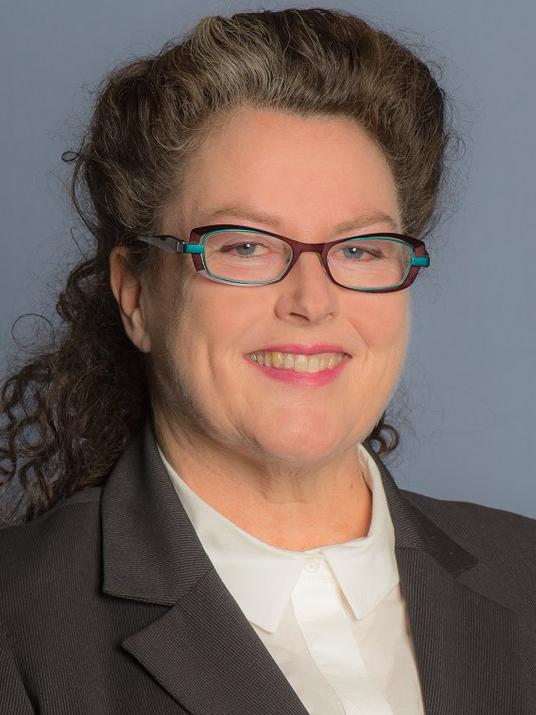
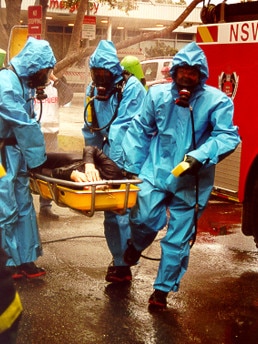
After the Olympics Prof Bennett returned to her main focus, which was leading research into community transmission of infectious disease.
She re-entered academia as a lecturer in 2001, gradually working her way through the ranks to become an Associate Professor of Epidemiology at the University of Melbourne, and leading the development of a new masters program before moving to Deakin University to become its foundation Chair in Epidemiology in late 2009.
During her career she has met with state and federal ministers, and received many awards including Deakin University’s 2019 Vice-Chancellor’s Award for Outstanding Contribution to Student Wellbeing and Safety, recognising the contribution of a program she led around changing drinking culture.
However, it has been the Covid pandemic that has made Prof Bennett a household name, and she has become a trusted source of information for many in a time of uncertainty.
Seeing a female expert on their televisions has thrilled some but has outraged others, and Prof Bennett has weathered insulting and sometimes threatening comments made against her.
“I do find it difficult, everyone finds it difficult even the men, but at least I can bury myself in my work,” she said.
Prof Bennett’s workload has increased so much in the last two years that she’s often working seven days and doing 100-hour weeks.
‘No such thing as educating women’
The vast majority of feedback she receives from her frequent media appearances is positive, with many grateful that she continues to front up for a role that she’s doing in her own time.
“But among that, you have the contrarians, people who don’t like the science you are reporting because it conflicts with their politics and they’re the people who can go in for the attack,” Ms Bennett said.
“It’s interesting because sometimes the attack is personal, they try and undermine you as an academic, a professional and a researcher.
“You don’t see that as often against males — where people comment on your hair.
“It’s a strange thing and it predominantly comes from males, although it’s not solely from males.”
Prof Bennett said some men even felt safe enough to contact her on LinkedIn, where details of their identity and workplaces are visible, and address her while placing quote marks around her title of “professor”.
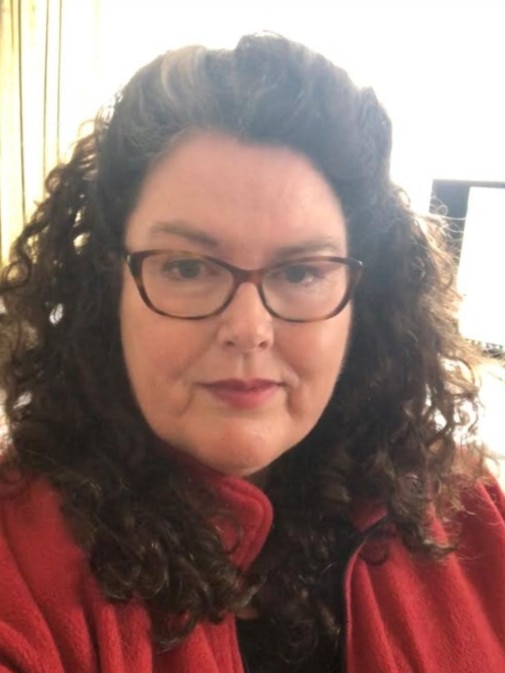
“I think these people are probably rude anyway but it takes a special type of rudeness to try and silence females and to try it make it less likely for them to continue their reporting,” she said.
“They try and make it as unpleasant as they can for you.
“I think it also says something about their opinion of women and particularly of women in senior roles.”
One email she got from a man with the subject line “you are an idiot” informed her there was “no such thing as ‘educating women’ as every innovation and necessity in history has been spearheaded by men”.
“As long as we live in a developed economy, women are entirely reliant on the abilities of men,” the email said.
Prof Bennett said she looked up the man’s details and realised he lived in America.
“It was not someone in some strange part of the world, it was someone living in mainstream society, who thinks it’s their business to write to female academics around the world to tell them that.”
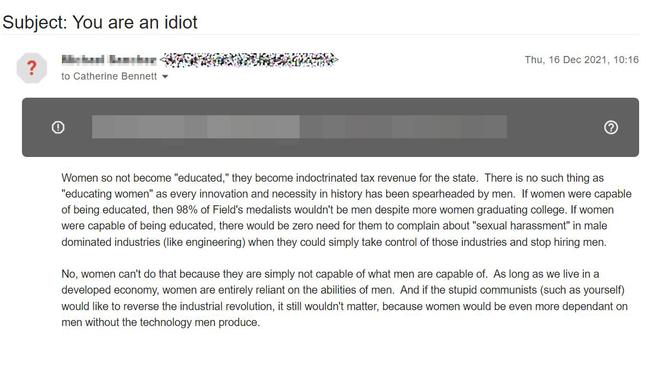
Few women in senior roles
One thing that has been positive about Covid is that seeing female role models in the space has inspired other women to pursue more advanced career paths in science, health and academia.
“I do think we are changing the perception of what a professor looks like,” Prof Bennett said.
She said women had told her they had decided to enrol in public health and infectious diseases courses after being exposed to what she did.
“It’s something that has put science in full vision.”
However, Prof Bennett still battles lingering stereotypes.
In the media she still sometimes gets referred to as “Ms” instead of “Professor”, and it’s not just male reporters who do that.
Prof Bennett said that while public health has quite a feminised workforce, science is a field that’s dominated by men and it’s hard not to notice how few women are in senior roles.
“As you move up the ranks in academia, women represent less than a quarter of professors,” she said. “The further you rise up the ranks, the harder it is to ignore the fact that there is a gender bias there.”
She said this made finding female role models and mentors even more important and it was sometimes necessary to look outside the department you worked in.
“It’s powerful and helps you believe that gender shouldn’t be a barrier, visibility is really important.”
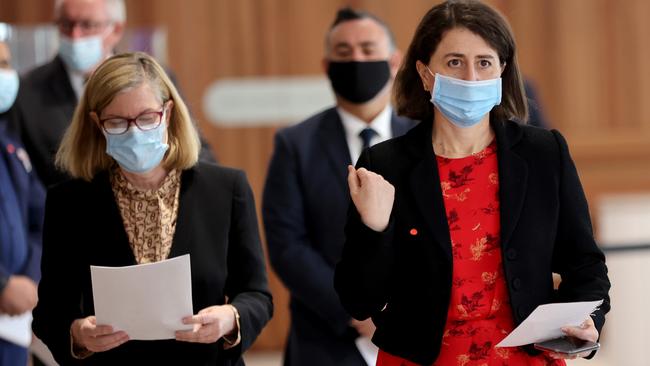
‘I chose not to share cancer diagnosis’
The assumptions people have of role models is another thing Prof Bennett has realised is important. She does not have children and says this may give the impression she’s had an easy run in her career but she has also faced barriers.
“I am a breast cancer survivor and I was diagnosed after I became head of my school,” she said.
“I chose not to share that as I was a relatively new leader.
“Looking back I wonder how many other people go through similar health concerns? You don’t have to have a barrier-free life or career to be successful.”
In fact Prof Bennett says many of the most successful female academics do have families and she believes it’s the narrative that’s built around work and home responsibilities that should be changed.
Through her mentoring of female academics she’s noticed they often feel compelled to provide an “explanation” for their “deficit of output” when applying for opportunities, describing what they had achieved “despite” only working part-time.
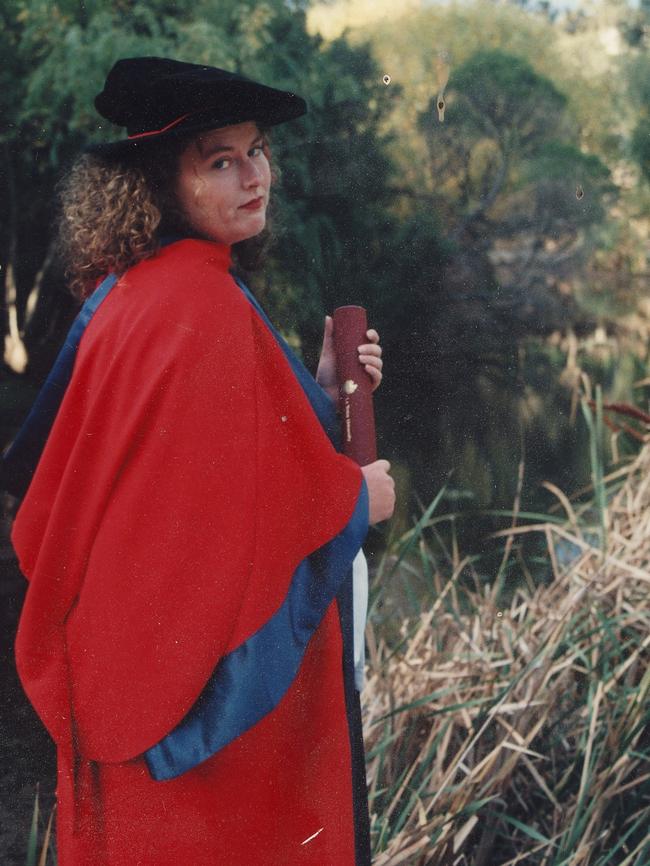
Instead Prof Bennett encourages them to emphasise the strategic ability they had shown in producing the output they had, and setting up their careers.
“It’s saying that women have to be really strategic and often innovative in how they approach their careers to stay in their careers while others don’t need to,” she said.
“We should be celebrating that.
“We have to get away from the idea that career disruption is a negative and they have to explain some deficit.
“We should be saying ‘wow, look how far you’ve come given you are working half time’ and the successful strategy you’ve put in place to keep your research project moving along.”
‘You have to find that extra energy’
In terms of obstacles, Prof Bennett believes women often have to prove they are already operating at the level required to get a promotion, whereas men appeared more likely to get opportunities based on their potential.
She said one male academic had once suggested that she should get herself invited on to a panel for a research institute if she wanted to be promoted to senior lecturer.
“I don’t know many lecturers who get that kind of opportunity and while the comment was partly complimentary — he said I had a reputation and was respected so it could happen — but would you ever say to a male that he had to do that before he would be considered for a promotion?
“I don’t have specific examples of being held back — but there were different expectations.
“I think it is a sense, an awareness, that you just have to work that bit harder across the board. You have to find that extra bit of energy, you feel that you have to be that bit better to be on an even playing field at all times.”
Prof Bennett said this meant goals were pushed that little bit further out and women might spend more time achieving them.
She said female academics were also often given larger administrative duties, possibly because they were good at multi-tasking and committed to performing the tasks well because they wanted to ensure they were able to go ahead with teaching or research goals.
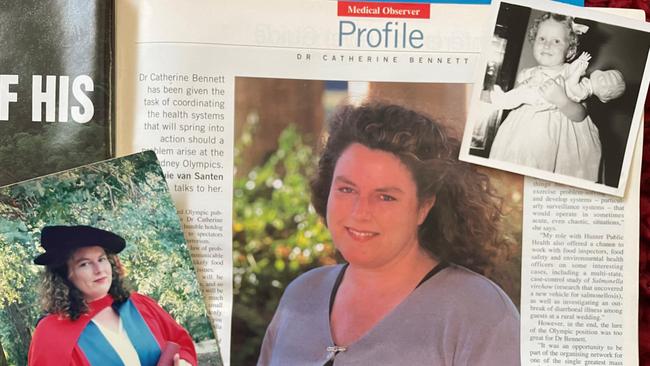
One thing that keeps her going
Another common issue for women is the sense they don’t deserve to be in their roles.
“I think for me, like everyone else, there is a sense of impostor syndrome, and that’s true for most women I know” Prof Bennett said.
“I think the saving thing for me has always been that I’m very task focused.”
She said if she had fully considered the challenges of taking on some of the roles she had, she might not have put her hand up for them. Her approach has been to take on the challenge first and then just make it work.
“I just focused on the work, the research or the outbreak investigation. Often it was after the fact that I thought, wow, that was a big step for me,” she said.
“You do it in the moment and build confidence and then move on.
“Opportunities opened up, people see you working competently — you know the saying ‘always give work to a busy person’ — so opportunities come and you grow into it.”
Prof Bennett said the only risk in this approach was developing a career by default, guided by the opportunities others laid in front of you.
“You also have to sit back and think sometimes, did I take a path I wasn’t intending?
“You have to look at where you are investing and look at what you are contributing and where you made a difference.”
Looking back at the past two years, Prof Bennett said the one reason why female figures like herself have managed to weather the comments and stay in the public space, is the affirmation she gets from the majority of people.
“That’s what keeps us going, it’s the people who take the time, whether they are my senior peers or the general public, that tells you what the real world in balance thinks — not just the occasional bitter email which is probably more about them than us anyway,” she said.
“You don’t want to develop such a thick skin that you shut out the comments and don’t stay open to the feedback, you don’t want to change what you do because of them but you don’t want to ignore them so much that you also don’t see the positive ones.”
What Prof Bennett always comes back to is a focus on her work, saying “data is my true north”.
“It’s not even so much the beacon on the hill — it’s just the heart of what we do.”
Originally published as Epidemiologist Professor Catherine Bennett reveals shocking abuse from Covid trolls





